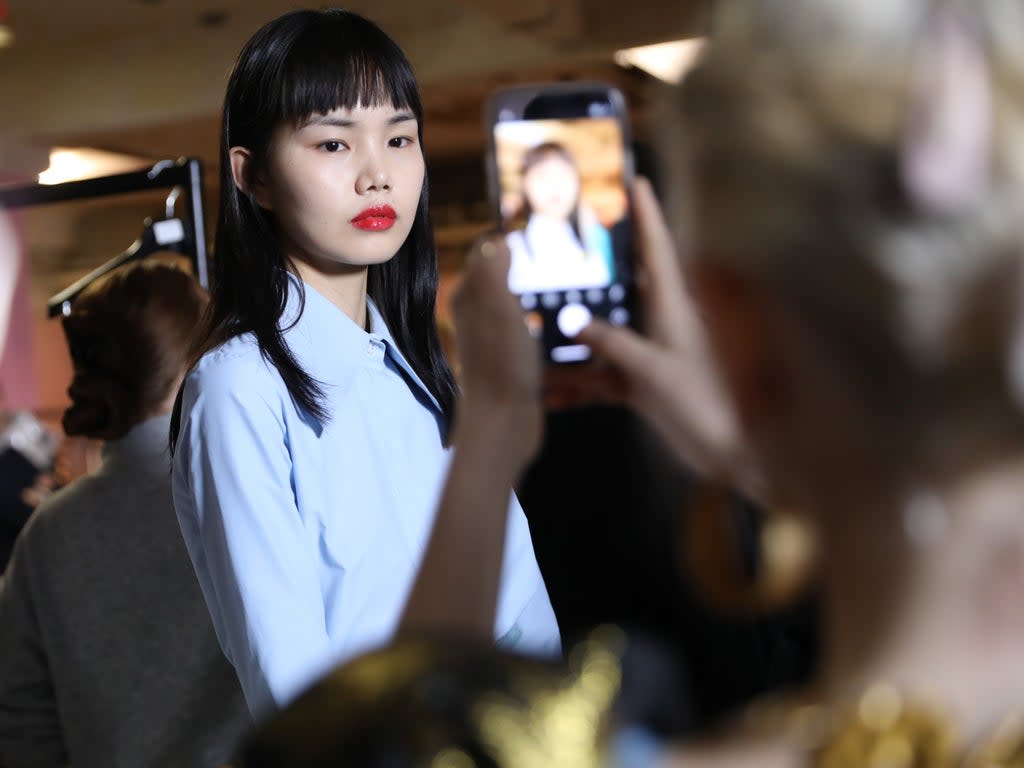The fashion world is asking itself some big questions

Why should we care about London Fashion Week given the Covid-19 pandemic and during a climate crisis, when the news cycle can appear bleaker than ever? It’s a question I ask myself with increasing frequency as I approach how we will cover each bi-annual fashion season.
That is an editor’s job, of course, to ask why our readers might be interested in something and how to best present it to them. But you’ll rarely find the same question repeatedly faced by journalists covering, say, a sporting tournament or a reality TV series. Fashion, though it impacts us all more than both sport and popular culture (in the very fact that everybody in the world wears it) always bears the brunt.
The reasons for this are numerous and sometimes fair: the devastating environmental impact of the clothing and textile industries; the disturbing human rights concerns around fast fashion; the elite and often snobbish bubble in which the inner sanctum of high fashion operates. And yet, these issues are far from unique to the fashion industry. I have always felt fashion to be an easy target because it is female dominated and therefore considered by some to be frippery.
This season, as physical catwalk shows and presentations return to London Fashion Week for the first time since before the pandemic, the press, influencers, buyers, designers and photographers are reconsidering fashion’s place in the world. Not least because we’ve spent the best part of 18 months in activewear – something even the most astute trend forecasters could not have predicted – but because the world is quite a different place since.
This season, there are notable absences from the schedule: Burberry, JW Anderson and Vivienne Westwood; and many designers are opting for smaller, more intimate showings, either to respect social distancing, or due to the untold financial strain they’ve faced in 2020 and 2021, or simply in recognition of the fashion world feeling a little smaller now.
Sustainability will be a key talking point during the shows, with the industry going through a reckoning about how to proceed with consumption during a crisis of depleting resources and increasing emissions.
Fashion, like art, film, novels and podcasts, reflects and drives the culture we live in. This season will feel heavier and more poignant than many that have preceded it, as designers question the entire industry process – one in which creative directors are often expected to create eight collections a year, that in turn drive an insatiable high street demand. Likewise, fewer people will be able to travel to all four fashion capitals (New York, Milan, Paris and London) due to travel restrictions.
This is an issue that impacts all of us – the dyed-the-wool fashion fans, the environmentalists, the economists and anyone interested in culture. Rather than asking why should we care, we might instead question if fashion will be forever changed by the pandemic and if so, how will a post-pandemic, mid-climate crisis fashion landscape look?
And also, after such adversity, how can we celebrate this wealth of talent on our doorstep, how can we nurture the skill, creativity, ingenuity and dedication of these designers who are either carving out new careers or trying to sustain their businesses in the face of so much aversion?
You’ll find all our coverage of London Fashion Week over in the lifestyle section. Hope to see you there.
Yours,
Harriet Hall
Lifestyle Editor
Read More
Editor’s letter: Countries like the UK must step up to help Afghan refugees
California wastes $276m on a pointless election in the middle of a pandemic
Emma Raducanu’s life is changed after sporting triumph for the ages
Editor’s letter: Cummings despises media commentators – but has become one himself
Editor’s letter: Sally Rooney reminds us the joy of culture is the conversation
How Trump and his acolytes created a crisis – then lost control of it

 Yahoo News
Yahoo News 
